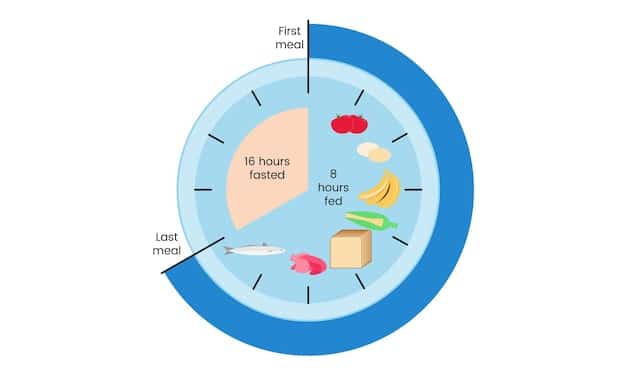The Science of Sleep: Unlocking Health Through Circadian Rhythms

The Science of Sleep: New Research Reveals the Importance of Circadian Rhythms for Overall Health, highlighting how these internal clocks profoundly influence our physical and mental well-being. Disruption can lead to various health issues.
Are you getting enough sleep? More importantly, are you sleeping at the right times? New research is continuously emerging, shedding light on the science of sleep: New research reveals the importance of circadian rhythms for overall health. This intricate system governs not only our sleep-wake cycle, but also a vast array of physiological processes. Understanding the profound impact of these rhythms is crucial for optimizing our health and well-being. Let’s dive into the science of sleep: New research reveals the importance of circadian rhythms for overall health and explore how we can harness its power.
Understanding Circadian Rhythms
Circadian rhythms are essentially our body’s internal clock, operating on a roughly 24-hour cycle. Regulated by a master clock in the brain called the suprachiasmatic nucleus (SCN), these rhythms influence everything from hormone release to body temperature fluctuations.
The Master Clock: SCN
The suprachiasmatic nucleus (SCN), located in the hypothalamus, is the central pacemaker of the circadian system. It receives direct input from the eyes, allowing it to synchronize with the external environment’s light-dark cycle. This synchronization is vital for maintaining optimal health. Let’s explore some key considerations
- Light Exposure: Light is the most powerful synchronizer of the SCN. Exposure to bright light, especially in the morning, helps to reinforce the circadian rhythm.
- Melatonin: The SCN regulates the production of melatonin, a hormone that promotes sleep. Melatonin levels rise in the evening, preparing the body for sleep, and decrease in the morning, promoting wakefulness.
- Genetic Factors: Genetic makeup can influence the natural length of an individual’s circadian rhythm. This can explain why some people are naturally “morning larks” while others are “night owls.”
Understanding how the SCN functions and how it is influenced by external cues is essential for optimizing our circadian rhythms and overall well-being. The science of sleep: New research reveals the importance of circadian rhythms for overall health reinforces this knowledge.
The Science of Sleep: New Research Reveals the Importance of Circadian Rhythms for Overall Health
Recent studies have illuminated the profound impact of circadian rhythms on various aspects of our health. Disruptions to these rhythms can lead to a cascade of negative consequences, affecting not only our sleep patterns but also our metabolism, immune function, and mental health.
Metabolic Health
Disrupted circadian rhythms have been linked to an increased risk of metabolic disorders, such as obesity, type 2 diabetes, and cardiovascular disease. This is because circadian rhythms influence the release of hormones that regulate appetite, glucose metabolism, and energy expenditure.

Impact on Mental Health
Emerging research also highlights the strong link between circadian disruption and mental health disorders. Conditions such as depression, anxiety, and bipolar disorder are often associated with irregularities in sleep-wake cycles and hormonal fluctuations driven by the circadian system.
- Mood Regulation: Serotonin, a neurotransmitter crucial for mood regulation, is influenced by circadian rhythms. Disruptions can lead to decreased serotonin levels, potentially contributing to symptoms of depression and anxiety.
- Cognitive Function: Sleep deprivation and circadian misalignment can impair cognitive functions such as attention, memory, and decision-making. This can significantly impact daily life and productivity.
- Seasonal Affective Disorder (SAD): This condition, characterized by depression during the winter months, is a prime example of how changes in light exposure and circadian rhythms can affect mental health.
The science of sleep: New research reveals the importance of circadian rhythms for overall health has shown these intricate rhythms impact our mental well-being, and addressing these disruptions is crucial for mental health.
How Circadian Rhythms Affect Physical Health
Beyond metabolism and mental health, circadian rhythms play a vital role in numerous other physiological processes. Their influence extends to immune function, hormone regulation, and even cancer risk.
Immune Function
The immune system is tightly regulated by circadian rhythms. Immune cells, such as T cells and macrophages, exhibit rhythmic activity, with their numbers and activity levels fluctuating throughout the day. Disruptions to these rhythms can impair the immune response, making individuals more susceptible to infections and chronic diseases.
Hormone Regulation
Many hormones, including cortisol, growth hormone, and thyroid-stimulating hormone (TSH), are released in a circadian pattern. These hormonal rhythms are essential for regulating various bodily functions, such as stress response, growth and development, and metabolism. The the science of sleep: New research reveals the importance of circadian rhythms for overall health reinforces the importance of such regulation.

Maintaining healthy circadian rhythms is essential for supporting optimal physical health. Prioritizing regular sleep schedules, light exposure, and healthy lifestyle habits can help bolster these rhythms and reduce the risk of various health problems.
Common Disruptors of Circadian Rhythms
In today’s fast-paced world, numerous factors can disrupt our natural circadian rhythms. Understanding these disruptors is the first step in mitigating their negative effects.
Shift Work
Working irregular hours, especially overnight shifts, can severely disrupt circadian rhythms. This misalignment between the internal clock and the external environment can lead to chronic sleep deprivation, metabolic problems, and increased risk of accidents. Mitigating these effects requires careful planning. Let’s consider helpful tips
- Consistent Sleep Schedule: Even on days off, try to maintain a consistent sleep-wake schedule to help stabilize your circadian rhythm.
- Strategic Light Exposure: Use bright light exposure during work hours to promote alertness and suppress melatonin production. Conversely, avoid bright light exposure before bedtime to facilitate sleep.
- Melatonin Supplements: Consider taking melatonin supplements to help regulate your sleep-wake cycle, but consult with a healthcare professional first.
Technology Use
The blue light emitted from electronic devices, such as smartphones, tablets, and computers, can suppress melatonin production and delay sleep onset. Using these devices close to bedtime can significantly disrupt circadian rhythms. Try these options
Strategies to Improve Your Circadian Rhythm
Fortunately, there are several evidence-based strategies that you can implement to improve your circadian rhythm and optimize your overall health. Let’s review common tips
Sunlight Exposure
Expose yourself to natural sunlight, especially in the morning. Sunlight helps to synchronize your internal clock with the external environment. Aim for at least 30 minutes of sunlight exposure each day.
Consistent Sleep Schedule
Go to bed and wake up at the same time every day, even on weekends. Maintaining a regular sleep schedule helps to reinforce your circadian rhythm and improve sleep quality. As the research highlighted through the science of sleep: New research reveals the importance of circadian rhythms for overall health, is it critical to have a sleep schedule.
- Gradual Adjustments: When making changes to your sleep schedule, do so gradually, shifting your bedtime and wake-up time by 15-30 minutes each day.
- Wind-Down Routine: Create a relaxing bedtime routine to prepare your body for sleep. This could include taking a warm bath, reading a book, or practicing relaxation techniques.
- Optimize Sleep Environment: Ensure that your bedroom is dark, quiet, and cool. Use blackout curtains, earplugs, or a white noise machine to minimize distractions.
Diet and Exercise
Engage in regular physical activity, but avoid intense workouts close to bedtime. Exercise can help to regulate circadian rhythms and improve sleep quality. Additionally, follow a healthy diet and avoid caffeine and alcohol close to bedtime.
Seeking Professional Help
If you are struggling to improve your circadian rhythm on your own, consider seeking professional help from a healthcare provider or sleep specialist. They can help you identify underlying causes of circadian disruption and develop a personalized treatment plan.
Understanding the science of sleep: New research reveals the importance of circadian rhythms for overall health allows you to take proactive steps to regulate your internal clock and improve your overall well-being. Prioritizing regular sleep schedules, light exposure, and healthy lifestyle habits can have a profound impact on your physical and mental health. By aligning your daily activities with your natural circadian rhythms, you can unlock a world of health benefits and live a more vibrant and fulfilling life.
| Key Point | Brief Description |
|---|---|
| 💡 The Science of Sleep | New research underlines the crucial role of circadian rhythms in health. |
| ☀️ Sunlight Exposure | Morning sunlight helps synchronize the body’s internal clock for better sleep. |
| ⏰ Consistent Schedule | Maintaining regular sleep times even on weekends improves rhythm stability. |
| 📱 Limit Screen Time | Reduce exposure to blue light from devices before bed to enhance melatonin. |
Frequently Asked Questions
Circadian rhythms are the body’s internal clock, regulating sleep-wake cycles, hormone release, and other physiological processes. They are crucial because disruptions can lead to sleep disorders, metabolic issues, and mental health problems.
Light is a major regulator of the circadian rhythm. Exposure to sunlight, especially in the morning, helps synchronize your internal clock. Conversely, exposure to blue light from screens at night can disrupt your rhythm.
Yes, shift work disrupts your circadian rhythm, leading to sleep deprivation, metabolic issues, and increased risk of accidents. Strategies include maintaining a consistent sleep schedule and strategic light exposure.
Go to bed and wake up at the same time every day, even on weekends. Create a relaxing bedtime routine and optimize your sleep environment by making it dark, quiet, and cool.
If you struggle to improve your circadian rhythm with lifestyle changes, seek help from a healthcare provider or sleep specialist. They can identify underlying issues and create a personalized plan.
Conclusion
In conclusion, understanding the science of sleep: New research reveals the importance of circadian rhythms for overall health, is crucial for our well-being. This understanding empowers us to take control of our sleep patterns and enhance our quality of life. By prioritizing regular sleep schedules, light exposure, and healthy lifestyle habits, we can promote optimal physical and mental health.





